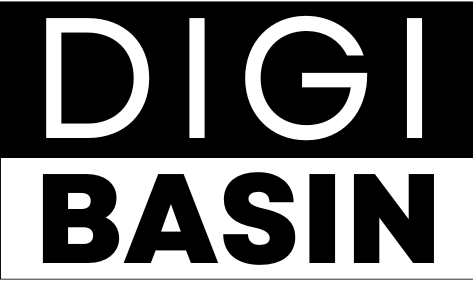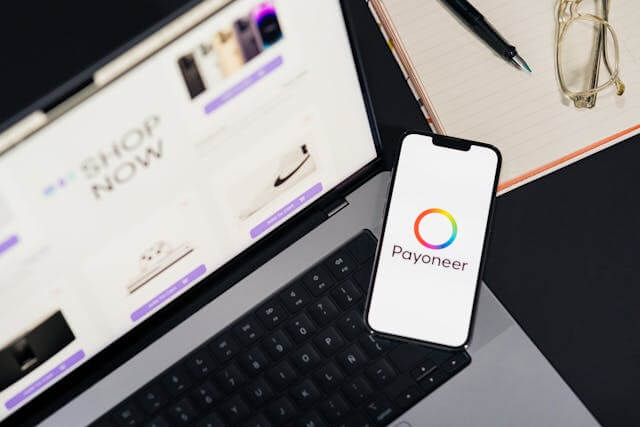If you are an African entrepreneur looking to sell globally, one of your biggest challenges is finding the right payment gateways.
A reliable payment processor ensures that customers from the UK, the USA, and other parts of the world can pay for your products smoothly. Without this, scaling your business or even reinvesting profits into assets like U.S. stocks becomes nearly impossible.
In this guide, I’ll walk you through the 10 best e-commerce payment gateways sellers in Africa can use to reach international buyers and grow their income.
Why Payment Gateways Matter for African Sellers
The African e-commerce market is booming. According to Statista, revenue in the African e-commerce sector is projected to reach $72 billion by 2025. Yet, one of the barriers to growth is limited access to global payment infrastructure. Many African sellers struggle with high transaction fees, lack of support for local currencies, and delayed payouts.
This is where choosing the right payment gateway becomes a game-changer. With the right solution, you can:
- Accept payments from international customers.
- Build trust with global buyers who prefer secure transactions.
- Access your funds quickly to reinvest in inventory or financial markets.
Now, let’s dive into the top 10 solutions.
1. PayPal
PayPal is one of the most recognized names in global payments. African sellers in Kenya, Senegal or South Africa who want to connect with buyers in the USA or UK often choose it because of its trust factor.
- Pros: International brand recognition, buyer protection, integration with Shopify, WooCommerce, and Etsy.
- Cons: Not fully supported in all African countries, high transaction fees (often around 4.4% + fixed fee).
- Best for: African sellers targeting buyers in Western markets who value PayPal’s protection policies.
2. Payoneer
Payoneer has grown into one of the most reliable e-commerce payment gateways African sellers can use to collect international payments. It allows you to receive money directly from U.S. and European marketplaces like Amazon, Fiverr, and Upwork.
- Pros: Local bank withdrawals, competitive fees, multi-currency support.
- Cons: Account verification can take time, limited direct integration with some African e-commerce platforms.
- Best for: Freelancers and online sellers who want to get paid in USD, GBP, or EUR and withdraw locally.
Also Read:
- How to Make Steady Income Online with Digital Marketing
- How to Earn Passive Income with Print-on-Demand Services
- 10 Best Websites for Finding Remote Jobs That Pay Well
3. Flutterwave
Flutterwave is a homegrown African payment solution that has become a global player. It powers popular platforms like Barter and integrates seamlessly with Shopify and WooCommerce.
- Pros: Accepts multiple currencies, including USD, GBP, and NGN, instant settlement in local banks, affordable fees.
- Cons: Some sellers report occasional account freezes.
- Best for: African sellers targeting both local and international buyers with a flexible gateway.
4. Stripe (via Partner Integration)
While Stripe is not directly available in most African countries, many sellers access it through partner integrations or by registering in supported regions. It remains one of the top gateways for African sellers targeting the UK and American market.
- Pros: Supports recurring billing, strong anti-fraud tools, seamless integration with e-commerce platforms.
- Cons: Limited direct access for Africans; may require legal registration in supported countries.
- Best for: Sellers who can legally set up businesses abroad and want a robust gateway for scaling.
5. DPO Group
DPO is a leading African payment service provider operating in over 20 countries. It allows businesses to accept payments in local and international currencies.
- Pros: Works with Visa, Mastercard, and mobile money, strong presence across Africa, local customer support.
- Cons: Setup process can be lengthy.
- Best for: African SMEs looking for a regional solution with international reach.
6. WorldRemit for Business
Although primarily known for remittances, WorldRemit also supports business transactions. Sellers can use it to receive payments directly from overseas customers.
- Pros: Low fees, fast transfers, strong UK and U.S. presence.
- Cons: Not as integrated with e-commerce platforms as PayPal or Stripe.
- Best for: Small sellers dealing with direct customer payments from abroad.
7. VoguePay
VoguePay is another African-based gateway that enables local businesses to accept payments from both local and global customers.
- Pros: Simple setup, supports multiple payment methods, including Bitcoin.
- Cons: Smaller brand recognition outside Africa.
- Best for: Sellers who want flexibility and alternative payment methods.
8. 2Checkout (now Verifone)
2Checkout is a global payment gateway available in over 200 countries. It is one of the best e-commerce payment gateways sellers in Africa can use to expand internationally.
- Pros: Global coverage, supports 45+ payment methods, integrates with leading platforms.
- Cons: Fees can be as high as 5.5% + $0.45 per transaction.
- Best for: African sellers with international customers who demand multiple payment options.
9. Interswitch WebPay
Interswitch is widely used in Nigeria and is expanding across Africa. Its WebPay solution helps businesses accept both card payments and bank transfers.
- Pros: Strong local presence, seamless integration with Nigerian banks.
- Cons: Less global reach compared to Payoneer or PayPal.
- Best for: Nigerian sellers focusing on domestic sales while slowly expanding abroad.
10. Skrill
Skrill has become a popular alternative to PayPal for African sellers. It offers global reach and supports both personal and business accounts.
- Pros: Low transfer fees, support for cryptocurrency, fast withdrawals.
- Cons: Not as widely trusted by Western buyers as PayPal.
- Best for: Sellers who need a low-cost solution to receive international payments.
Choosing the Right Payment Gateway
With so many options, how do you choose the right one? Here are key factors to consider:
- Market Reach: If your customers are mainly in the UK and USA, PayPal, Payoneer, and Stripe are top choices.
- Fees: Always calculate transaction costs, especially if margins are slim.
- Currency Support: Make sure the gateway supports USD and GBP to avoid losing money on conversions.
- Payout Speed: Faster access to funds means you can reinvest into inventory or even buy U.S. stocks sooner.
Also Read:
- How to Earn Passive Income with Print-on-Demand Services
- 10 Best Tools for Starting a Virtual Assistant Business
- How to Use TikTok Ads for Blogging Arbitrage: A Step-by-Step Guide
Final Thoughts
The rise of e-commerce payment gateways that African sellers can access today means that local entrepreneurs no longer face the same financial roadblocks as before. Whether you’re selling handmade crafts, digital products, or running a dropshipping business, there’s now a reliable way to collect payments from international buyers.
For African sellers aiming to reach the UK and American market, solutions like PayPal, Payoneer, and Stripe (via partnerships) offer global credibility. Meanwhile, homegrown platforms like Flutterwave and DPO provide strong local support with international features.
Ultimately, the payment gateway you choose should align with your business goals, your customer base, and your future growth strategy. By picking the right one, you can scale your e-commerce operations, reinvest profits, and even diversify into U.S. stock investments for long-term financial security.


















